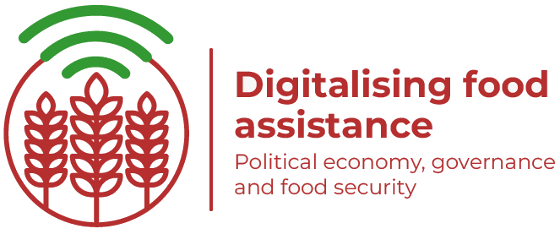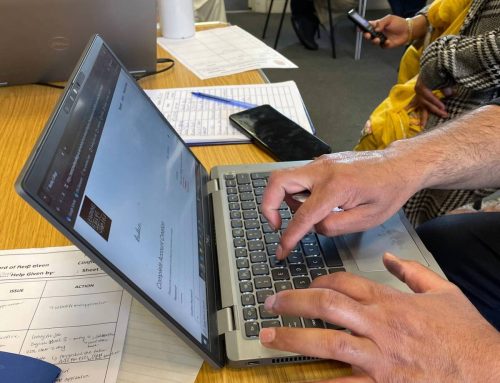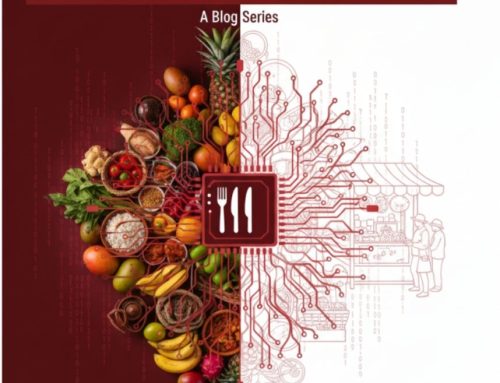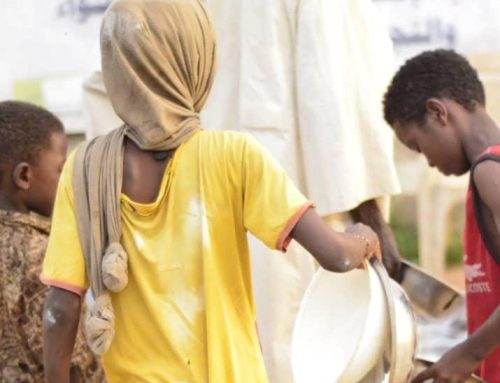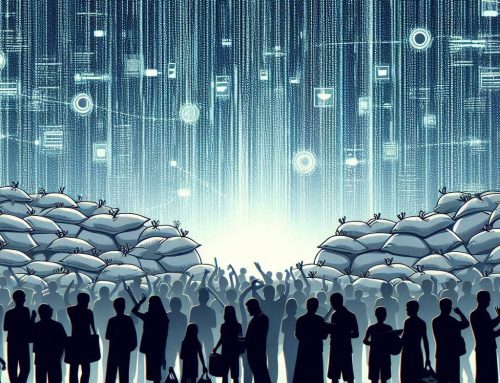Going Remote: Learning from Aid Practices in Somalia and Sudan for the Covid-19 Crisis
Authored by: Susanne Jaspars
Originally published on 17 May 2020 by LSE
The Covid-19 pandemic has transformed or intensified ‘remote’ forms of working. Like for much of the world’s population, the mobility of aid workers has become restricted and so have the possibilities of distributing material or in-kind aid. At the same time, humanitarian crises and the need for aid will increase; including not only for health care, but also ongoing and new needs for food and economic assistance. Covid-19, as well as measures to control it, will affect access to food, work, markets as well as the production and supply of food. Restricted mobility, closure of borders, and loss of labour due to illness or death will all impact on livelihoods, food security and nutrition.
In conflict-related crises such as Somalia and Sudan, but also many others such as Syria, Yemen, Afghanistan, aid agencies have implemented aid programmes remotely for a long time. New technologies for remote programming have enabled aid agencies to reach crisis-affected populations, but at a cost: they rarely contribute to an understanding of the political and economic processes that result in some groups controlling resources and that make others vulnerable. Remote working as the preferred aid option also changes how aid workers perceive realities on the ground, with the danger of losing sight of of local knowledge, priorities and critiques. Building on recent research on food assistance in Somalia and Sudan, this blog draws out three key lessons from experience of remote programming to address this issue:
- First, consider the power effects of the infrastructure and logistics even for ‘mobile’ aid.
- Second, maintain context-specific analysis using independent and qualitative methods, to prevent creating ‘alternative realities’.
- Third, power relations and inequality do not disappear if you do not see them. Active measures need to be taken to make these visible.
Each of these are elaborated on below:
Remote provision of mobile cash transfers and its effects; what do we know?
In places like Darfur, Sudan, and southern Somalia, remote programming started because of security threats to aid workers and denial of access. In Sudan, access to many conflict-affected populations was denied by the former government and in Somalia because of Al-Shabaab’s presence. At first, remote programming involved working with more national staff or NGOs than international staff, but today digital technologies are often used for assessments, cash transfers, education and information sharing. The latter is likely to increase with Covid-19, as in-kind aid distributions may increase virus transmission with the physical presence of aid workers, the concentrations of people it creates, and beneficiaries will face restrictions on movement.
In Somalia, mobile money transfers – cash transfers via mobile phone – have become a key part of the economy and of aid provision. In response to food insecurity resulting from Covid-19, the World Food Programme (WFP) has already suggested that ‘cash-based transfers (CBT) should be considered as a standard response. CBT can mostly be safely distributed via contactless solutions’. The Cash learning project has similarly reported that organisations are switching from in-kind to cash provision because it ‘allows for more remote delivery, less clustering at distribution sites and can reduce transmission risk’.
So what do we know about remotely providing cash and its effects? In Somalia, cash transfers were first scaled up in response to the 2011 famine, using money transfer agents (Hawala) to provide physical cash. By the time of the 2017 near-famine, this was largely replaced by ‘mobile money’ via Hormud, a Somali-owned business conglomorate, and through WFP vouchers which are redeemed through a network of over 1000 retailers. In Darfur, vouchers were introduced in 2011, for some of the IDP camps in North Darfur.[1] Evaluations have praised cash transfers for their cost-effectiveness, speed, and the choice they provide for beneficiaries. In both cases, in addition to providing dignity and choice for beneficiaries, cash transfers aimed to strengthen banks, improve market and food systems, and enhance dietary diversity. In Somalia, cash transfers were sometimes linked with promoting social and behaviour change, including child feeding, sanitation and hygiene practices.
Like all forms of assistance, cash programming is subject to diversion and corruption (including bias in issuing contracts, targeting and taxation of beneficiaries) and becomes part of the local political economy. Cash programmes can build up or enforce the power of businesses and local authorities that are involved in its provision, and the nature and effect of this is important to examine. In Somalia, ‘mobile money’ contributed to the massive growth of a small number of large companies (in particular Hormud), while vouchers increased the power of District authorities and their control over resources. These elements of cash transfers have not yet been explored in Darfur. In addition, food or other goods for crisis-affected people still need to be supplied, even if not directly by humanitarian organisations. In times of acute crisis and food shortage, this is likely to involve large transporters and traders as only they will have the capacity and long-distance contacts. In Sudan, these were often closely linked to the former, highly oppressive, regime. In Somalia, large businesses involved in transport and food trade have been amongst the most wealthy and powerful in the country.
With Covid-19, food supply will likely become an issue, as production decreases, borders close and global supply routes are interrupted. Larger companies will be in a better position to address these constraints and to take advantage of market opportunities when the economy opens up again. Dependence on large companies may be necessary to start with, particularly when lives are at risk. As soon as possible, however, working with a range of smaller transporters and retailers will diffuse both economic and political power. This in turn reduces the potential for an unregulated concentration of power in the hands of small cartel, and the scope for exploitation and abuse. A large number of small retailers, where people can spend their money or voucher, will also be important to minimise crowding.
Remote assessments: be careful not to create an alternative reality
Quantitative indicators, cash transfers, and standard packages of nutrition products and behaviour change are well-suited to remote programming. With face-to-face interviewing and physical aid distribution increasing the risk of virus transmission, the temptation will be to rely exclusively on such methods. They are also, however, likely to create an “alternative reality” if not combined with more detailed and qualitative information gathering and context-specific approaches. This has been evident in both Sudan and Somalia.
In both places aid practices created one reality of technical progress based on a set of new individualised, market-based and remote technologies, which can be contrasted with another reality of ongoing violence and aid manipulation experienced by crisis-affected populations and to some extent known by aid workers. Research on food aid in Sudan suggested that the focus on individual behaviour (feeding, hygiene, coping strategies, “dependency”) created a reality in which conflict is invisible and people are malnourished and food-insecure largely due to their own actions. This could also be seen as a fantasy, because it implied denial of ongoing conflict and displacement. At the same time, aid workers knew at some level that the conflict continued to cause displacement and food insecurity, but the impossibility of delivering material aid, their remoteness and the pressure to keep assistance going (and the moral dilemma this created) helped maintain the fantasy. In Somalia, the analogy of front-stage and backstage in the humanitarian theatre, as proposed by Desportes et al. (2019) seemed to work better. Here, new cash transfer and nutritional practices are presented as helping people become resilient on the front-stage, but backstage everyone knows that power remains concentrated within a few actors, and marginalisation and exclusion continue. The difference in the Somali case is that almost all involved in aid had both a backstage and front-stage presence but separation has been necessary to maintain aid programmes. Recent discussions with key stakeholders highlighted the need to bring the two together if malnutrition and food insecurity are to be addressed.
It is important to reveal the ongoing role of politics and power in creating food insecurity and humanitarian crises, including when responding remotely to Covid-19-induced crises. An emphasis on structural causes is particularly important because both current food assistance practices and practices to contain the spread of Covid-19 focus on individual behaviour. As such the risk will be that responsibility or blame will shift from state and international community to individuals (and poor, marginalised and displaced individuals within that). While it may not be possible to conduct extensive qualitative research on the ground, mobile phone or digital networks can be used for in-depth interviews with trusted sources and could be used to interpret the quantitative data collected on a larger scale. The first step is recognising the limitations of a small number of quantitative indicators and of technological solutions. A second step could be to convene a Somali or Sudanese panel of experts to conduct and discuss and triangulate with in-depth interviews.
Risk of maintaining inequality and of hiding poverty and conflict
Any crisis has the potential to increase inequality; it tends to hit the poor or marginalised hardest and those with power will find ways to benefit. Both Sudan and Somalia are already highly unequal societies. In Sudan, an Arab elite has dominated government and access to resources, in Somalia, resources are concentrated within a political and business elite consisting mostly of historically dominant clans. Both have a long history of conflict and famine with winners as well as losers, and a long history of aid practices feeding into unequal power relations and conflict. Food assistance has frequently excluded the most vulnerable or crisis-affected, or not reached them with sufficient assistance, and yielded benefits for the more powerful such as the traders and transporters – and their political connections – as indicated in the first section above.
The Covid-19 pandemic is already expected to have a disproportionate effect on the poor, the homeless, and the displaced. In Somalia, these are also the traditionally most marginalised groups and in Darfur, they include those who opposed the former regime and targeted most severely by its counter-insurgency operations. Many have been dispossessed of their land, displaced, and form a marginal and precarious labour force. They are also concentrated in urban areas, where they live in overcrowded camps with often poor services; all of which makes them more vulnerable to the Covid-19 virus.
The risk is that a Covid-19 humanitarian response will exacerbate these inequalities, just like past humanitarian assistance operations have done. Preventing this will mean first of all making inequalities visible by monitoring and analysing effects of aid on power relations. Remote and quantitative techniques will not reveal these power dynamics and just because existing techniques do not allow you to see the political economy of aid does not mean it is not there. Many Somali and Sudanese aid workers and analysts know this – but need an incentive to share their knowledge, rather than being disempowered by remote and top-down responses. Past epidemics have shown that local knowledge is essential in designing an effective response. As in other complex crisis situations, there will be no easy solution, and every possibility (for example more decentralised voucher systems or more aid as mobile cash transfers) will involve some moral losses. As Hugo Slim writes in his book on Humanitarian Ethics, it is essential for humanitarian organisations to go through a process of deliberation, weighing up the humanitarian gains and moral losses for each option, and to make sure that as much information as possible is available on which to base this deliberation. As such it may be possible to have a compassionate and human response even when using remote technologies.
End Notes
[1]Vouchers were introduced in other parts of Sudan but access was not as limited as in Darfur.
